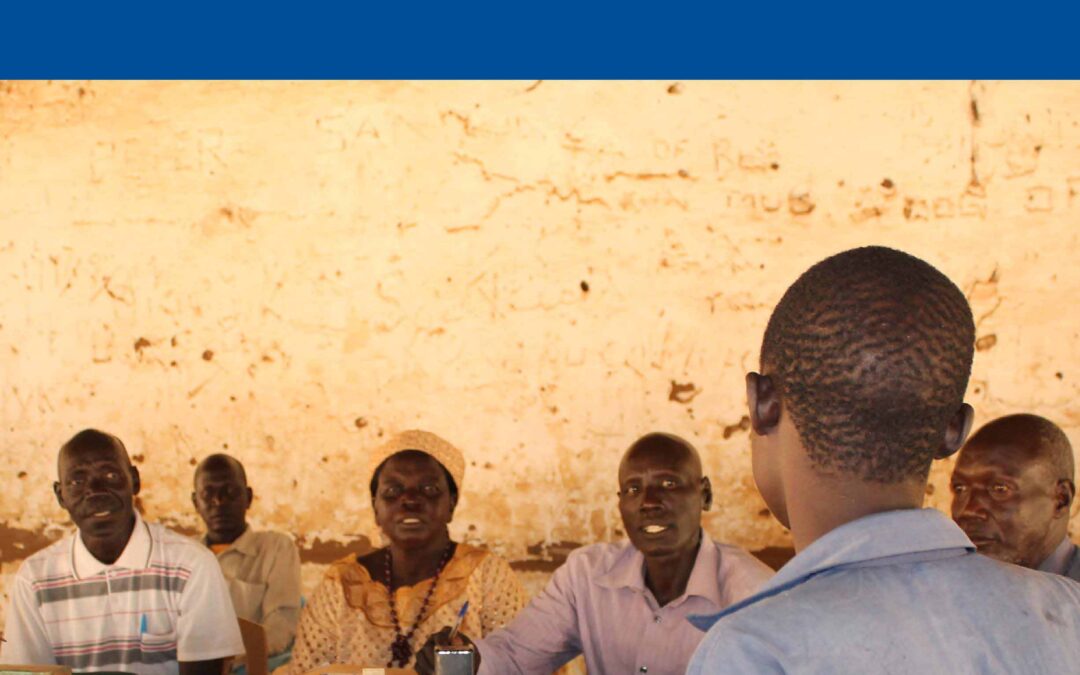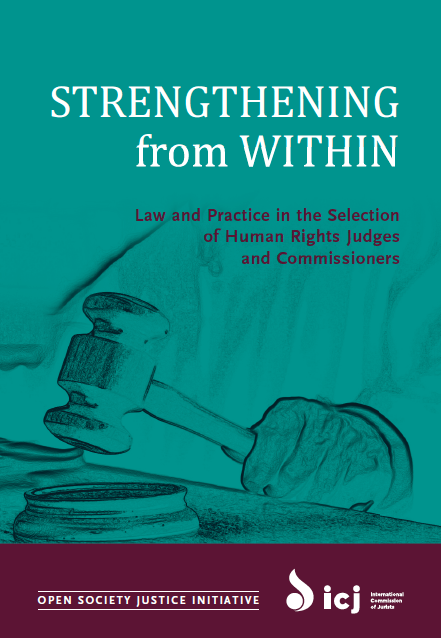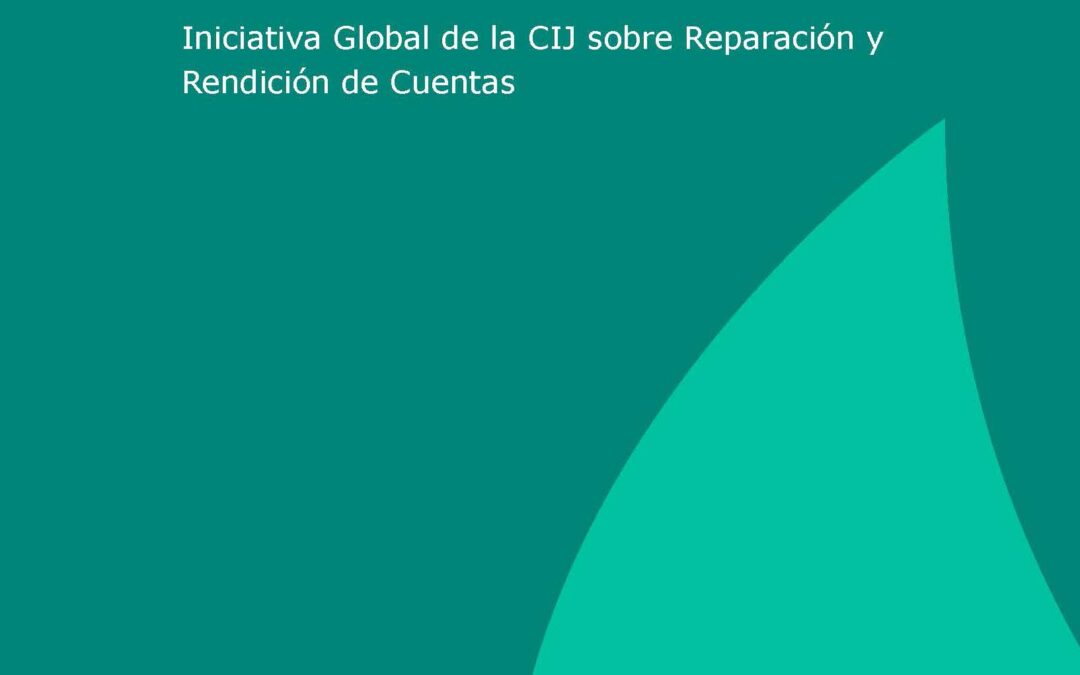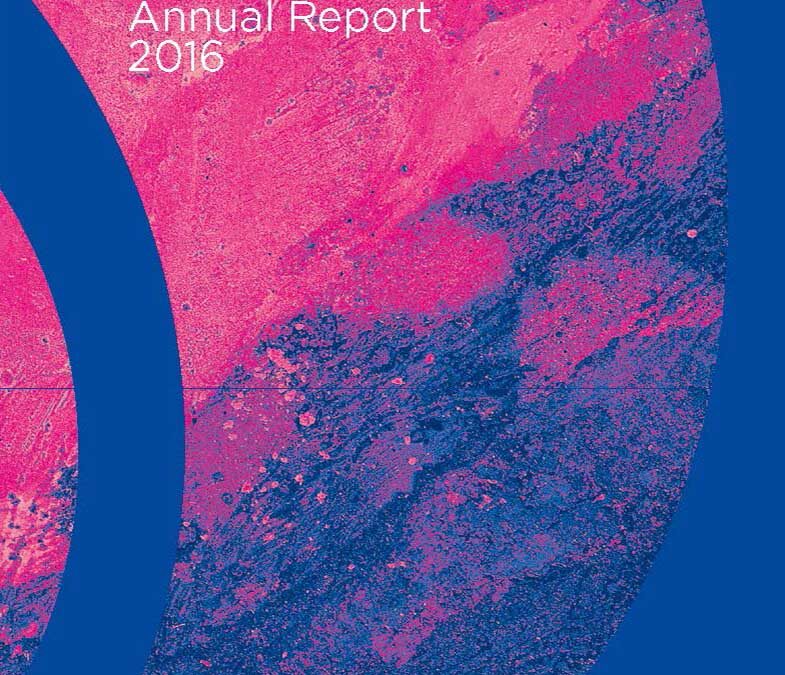
Feb 8, 2018
The ICJ has today published a compilation of international human rights standards relevant to Traditional and Customary Justice Systems.
The compilation is being published as part of an ongoing project on the relationship between traditional and customary justice systems, including indigenous justice, and human rights, access to justice, and the rule of law.
Among the sources included in the compilation are global and regional treaty provisions, UN and other declarations, and the jurisprudence and recommendations of Committees and Special Procedures established by treaties and the UN Human Rights Council.
The sources are organised by themes including the rights of women, rights of children, the role of judges and lawyers and the administration of justice, the rights of indigenous peoples, and the rights of minorities.
The 2017 ICJ Geneva Forum of Judges and Lawyers brought together judges and lawyers from around the world to discuss traditional and customary justice systems, and the ICJ is currently planning for continuing work on the theme over the next three years with the aim of producing practical global legal and policy guidance to assist actors within traditional systems, actors within State justice systems, and others to best ensure that everyone enjoys their rights of access to justice and other human rights. A report of the Forum is also available.
Contact
Matt Pollard, Senior Legal Adviser, matt.pollard@icj.org
Universal-Trad Custom Justice Compil updated-Publications-2018-ENG (Full publication in PDF)
Cover Photo: Traditional leaders preside over a case in B-Court, Nyang Payam, Torit County, South Sudan. Photo Credit: UNDP South Sudan2016Angelique Reid ©2016 United Nations

Nov 2, 2017
National procedures for the selection of regional human rights court judges too often fail to meet standards of fairness, inclusiveness and transparency, a joint Open Society Justice Initiative (OSJI) and ICJ report published today concludes.
The report makes recommendations aimed at ensuring that the best qualified candidates are selected as judges of regional human rights courts.
Regional human rights courts and commissions—including the African Court of Human and Peoples’ Rights, the European Court of Human Rights, and the Inter-American Court of Human Rights—are essential safeguards for the rule of law.
Yet despite their importance, the process of selecting the judges and commissioners who sit on these bodies—how they are nominated, vetted, and ultimately selected—remains largely unknown and often shrouded in secrecy.
Coupled with broader political efforts to erode international judicial institutions, this secrecy underscores the pressing need to focus on strengthening these systems from within.
This report, Strengthening from Within, responds to that challenge.
It shines a light on the processes that states use to nominate and select human rights judges and commissioners.
By analyzing the nomination practices of 22 countries, the report documents the ways in which nomination procedures often fall short of the legal frameworks and international standards that should guide them.
It also identifies promising practices and offers recommendations for improvement grounded in experience.
An independent judiciary is essential to the rule of law: for national courts, procedures for judicial selection must be fair, transparent, and merit-based. As this report makes clear, the world’s international courts and tribunals are no different.
Universal-Strengthening from Within-Publications-Reports-2017-ENG (Full report in English, pdf)

Aug 22, 2017
La crisis política institucional en Venezuela ha llevado al colapso Estado de Derecho y ha obstaculizado gravemente la rendición de cuenta de los responsables de graves violaciones a los derechos humanos, concluyó la CIJ en un informe publicado hoy.
El informe de la CIJ Lograr justicia por graves violaciones a los derechos humanos en Venezuela constató que el gobierno de Presidente Nicolás Maduro han emprendido una sostenida campaña para tomar el control del Tribunal Supremo de Justicia, suspender, con el apoyo del máximo órgano de justicia, los poderes constitucionales de la anterior Asamblea Nacional, arrogarse amplísimos poderes y subvertir el Estado de Derecho.
“El Estado de Derecho en Venezuela ha sido reemplazado por el ejercicio arbitrario del poder por el Ejecutivo,” dijo Alex Conte, coordinador de la Iniciativa Global de la CIJ sobre Reparación y Rendición de Cuentas.
“La Constitución no es respetada, el Poder Judicial no es independiente y la separación de poderes es inexistente,” agregó Conte.
El informe del CIJ concluye que la situación de los derechos humanos en Venezuela se ha deteriorado rápidamente en los últimos años, especialmente desde 2014.
Las ejecuciones extrajudiciales y arbitrarias, la práctica de la tortura y malos tratos, las detenciones arbitrarias y el juzgamiento de civiles por tribunales militares, así como la criminalización y persecución de toda forma de disidencia política y social se han incrementado vertiginosamente.
“El contexto político de extrema polarización y la ruptura del Estado de Derecho, así como la falta de independencia del Poder Judicial, han obstaculizado gravemente la rendición de cuenta de los responsables de graves violaciones a los derechos humanos. Las víctimas y sus familias han visto denegado su derecho a la justicia,” dijo Conte.
Esta situación ha sido exacerbada por la reciente destitución de la Fiscal General de la República, calificada por la CIJ como un acto políticamente motivado, violatoria de los estándares internacionales, y que elimina uno de los últimos controles institucionales del Poder Ejecutivo y destruye uno de los pocos destellos de esperanza para una poner fin a la impunidad por las violaciones a los derechos humanos.
La CIJ considera que la creación de una “Comisión de la Verdad” por la Asamblea Nacional Constituyente es preocupante, toda vez que existen grandes temores de que sea un instrumento manipulado políticamente para afianzar la impunidad del Ejecutivo y para silenciar a la oposición, en lugar de cumplir con el deber del Estado de investigar pronta y efectivamente las denuncias de graves violaciones a los derechos humanos.
“La arraigada situación de impunidad en Venezuela no puede ser superada sin el establecimiento de un Poder Judicial independiente que pueda abordar las violaciones a los derechos humanos, disuadir de futuras violaciones y ayudar restablecer el Estado de Derecho,” agregó Conte.
Contacto:
Alex Conte, Coordinador de la Iniciativa Global de la CIJ sobre Reparación y Rendición de Cuentas, t: +41 79 957 27 33, C.E.:alex.conte(a)icj.org
Federico Andreu Guzmán, Representante de la CIJ para Suramérica, C.E.: federico.andreu(a)icj.org
Venezuela-GRABaseline Study-Publications-Reports-Thematic reports-2017-SPA (informe en PDF)

Jul 24, 2017
In a report published today, Judges for Judges and the ICJ analyze disciplinary proceedings against Bulgarian Judge Miroslava Todorova in relation to international standards on judicial independence and accountability.
On 12 July 2012, the Supreme Judicial Council of Bulgaria dismissed Judge Miroslava Todorova, at that time a judge of the Sofia City Court and Chairperson of the Bulgarian Judges Association, on the grounds that she was responsible for delays in a number of cases.
Subsequently, Judges for Judges and the ICJ followed the disciplinary proceedings against Todorova and sent trial observers to Sofia on two occasions, in May 2013 and November 2014.
In their findings, the ICJ and Judges for Judges do not address whether, and if so which, disciplinary sanctions may have been appropriate in this case.
They note, however, that the disciplinary proceedings concerned delays, constituting judicial misconduct, in a context where according to many internal and external observers the workload between the courts is divided unevenly and may be very high for some.
The two organizations also note that, as the second three-judge panel pointed out, the overall organization of the workflow was never properly considered in considering and reaching a determination n the disciplinary case.
With the quashing of the second three-judge panel’s decision, likewise other relevant circumstances were not taken into account.
Furthermore, the report finds, disciplinary practice in Bulgaria is deficient in respect of its lack of predictability and consistency, and doubts expressed by many observers as to the independence of the Judicial Service Council muddy the waters further.
The 2013 amendments to the legal framework only partially served to remedy the disciplinary practice’s deficiencies.
In particular, a full right of defence that includes the opportunity for the defendant to address all arguments and evidence remained wanting at the time of the Todorova proceedings.
In the report, the ICJ and Judges for Judges also note the animosity towards Todorova from certain quarters in the Executive and SJC for her activities as the chair of the BJA in defence of judicial independence.
Under the circumstances, there is an appearance that the disciplinary proceedings against Todorova were instituted and pursued selectively, and the system of the disciplinary proceedings in Bulgaria does not provide sufficient safeguards to dispel this appearance.
The disciplinary proceedings against Todorova demonstrate why it is crucial that accountability mechanisms be independent not only in theory but in practice, and for such mechanisms to be in some way themselves publicly accountable.
Bulgaria-The Todorova Case-Publications-Reports-Trial observation reports (full report, in PDF)
For additional background, see:
ICJ Practitioners Guide no 13, Judicial Accountability (2016, in PDF)
and more generally:
ICJ Practitioners Guide No 1, International Principles on the Independence and Accountability of Judges, Lawyers and Prosecutors (2007, in PDF)

Jun 23, 2017
The ICJ has issued its Annual Report 2016, which offers a concise summary of the work carried out by the ICJ over the past year.
In 2016, the ICJ’s mission gained new urgency as the organization countered a global assault on the concept of the rule of law and respect for the international human rights legal order.
The year started with the international community seeming to accept, via the adoption of Sustainable Development Goal (SDG) 16, the fundamental importance of the rule of law to the implementation of sustainable development around the globe.
The inclusion of the rule of law in the SDGs emphasizes the need to develop the nexus between development and the legal framework of human rights; the ICJ has done this since its inception in 1952, and more consistently since the 1970s, and will continue to do so in the context of the SDGs.
However, this optimism has been overshadowed by an unprecedented, if not entirely unforeseen, invocation by political figures around the world of fear-mongering, discrimination, and demagoguery to erode respect for human rights and undermine the basic notion of an international legal order.
As the year drew to a close, Burundi, the Gambia and South Africa initiated steps to withdraw from the Rome Statute of the International Criminal Court (though at the time of writing the withdrawals have either been reversed or suspended in all three countries, thanks in part to efforts by the ICJ).
A new administration in the United States of America signaled policies, inside and outside the country, at odds with fundamental principles of nondiscrimination and constitutional checks and balances.
Similarly, a new administration in the Philippines rapidly transformed the country from an important advocate for abolition of the death penalty to a country that has unapologetically embraced extrajudicial killings and taken steps to reintroduce the death penalty.
Turkey responded to a failed coup d’état by initiating an arbitrary purge of the judiciary that has significantly weakened the State’s judicial system.
Egypt has undermined the concept of judicial accountability by systematically using the judicial system as a tool of oppression.
Regrettably, there are many more examples of rights regression that can also be considered.
The anger about globalization is real and should not be ignored; in fact, the ICJ has for years pointed out the dangers of a global order that provides profit-making businesses with tremendous privileges but does not hold them to account, and we are currently engaged in the ongoing process for the elaboration of an international treaty on business and human rights.
However the solution is not to throw out the international institutions and systems that have been targeted but rather to strengthen these to ensure that they are fit for purpose.
The ICJ believes in the continued relevance of institutions such as the UN and the importance of the international standards that can be upheld through its mechanisms.
The ICJ has been working to ensure that these are increasingly accessible to everyone and has been working on a project with individuals and organizations from ASEAN to encourage and facilitate access to UN mechanisms for victims of rights abuses from the region.
The ICJ’s 2016 Geneva Forum explored the role of judges and lawyers in situations of large-scale movements of refugees and migrants and considered how the judiciary can uphold and protect the rights of those affected.
The ICJ also undertook training workshops with European lawyers to enhance their capacity to protect the rights of refugees and migrants through domestic legal systems in compliance with relevant regional and international standards.
The ICJ believes that an independent and robust judiciary is essential to this dynamic concept of the rule of law but also considers that a judiciary that acts with impunity and is unaccountable for any rights transgressions committed by the judiciary itself undermines this concept.
A new Practitioners’ Guide on judicial accountability was launched that addresses the complex and under-examined issues of how to ensure accountability for judicial misconduct whilst preserving the independence of the judiciary.
Judicial systems and processes can only be effective if they are accessible and the ICJ has been working to strengthen access to justice for particularly vulnerable and marginalized groups.
For example, in 2016, the ICJ released new Practitioners’ Guides on women’s access to justice for sexual and gender-based violence and on refugee status claims based on sexual orientation and gender identity.
For a complete overview of ICJ’s most important activities in 2016, you can download the Annual Report 2016 (in light PDF) here:
Universal-ICJ year 2016-Publications-Annual Report-2017-ENG (in low resolution to download faster)









